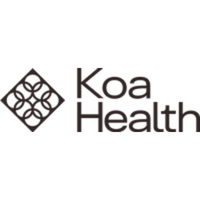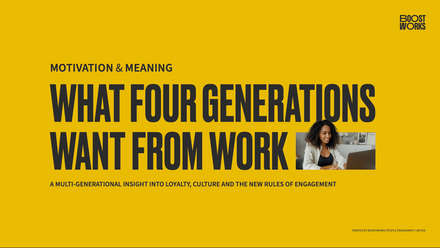4 flexible benefits that will appeal to all generations of employee
Employing multigenerational talent presents a competitive advantage for businesses. A successful combination of workers across age groups can drive innovation, strengthen the talent pipeline and generally improve the continuity, stability and productivity of workforces and organisations as a whole.
Improved health, changing timelines for education, building families later in life, the need for additional income and even government standards are pushing retirement ages back and changing the make-up of workforces in diverse industries. And as adults 50 and over make up a greater percentage of the generation than before, industry will need to contemplate how to keep an ageing workforce engaged and employed without neglecting younger generations’ needs.
Fortunately for employees and employers alike, workers of all ages are not dissimilar in work ethic and broadly value certain core benefits.
And while there are differences between life stages, tailoring policies to be flexible and adapt to individual circumstances is likely to be more effective than relying on tired generational labels (ie, Baby Boomers, Millennials, etc) to decide on how to best serve your entire workforce.
Beyond corporate standards such as private healthcare, and pensions, what are some benefits that employees of all ages are likely to appreciate?
1. Flexible working conditions
Across ages and life circumstances, a little flexibility goes a long way. Offering a certain degree of freedom when it comes to when and where work is done helps employees reconcile their personal and professional lives. Hybrid and flexible working models are especially friendly to multigenerational teams, as they offer a combination of in-person and remote working that appeals to workers across life stages. This type of model allows carers to work from home with a sick family member and those employees who feel more productive in-office to shorten their commute by using flexi-time to avoid rush hour.
2. Training and development
Ongoing education and skill development are traditionally considered the domain of starting-out and mid-career workers interested in growing into their next role. But neglecting to provide learning opportunities for more experienced staff is an oversight that organisations can’t afford. Practical learning and development opportunities can help employees of all ages to hone the hard and soft skills they need to thrive and continually develop at work. Specifically, it’s been shown that there are greater job market gains for mature employees who complete higher-level qualifications. To make opportunities for professional development as appealing as possible to the widest range of employees, consider offering learning opportunities in a variety of formats and celebrating successful completion.
3. Mental health and wellbeing support
With 74% of UK adults stating that they feel ‘overwhelmed’ or ‘unable to cope’ due to stress over the past year, it’s clear that mental health benefits are needed across all generations and the workplace can provide this support. To ensure coverage across the full continuum of mental health from mentally well to mentally ill, companies may want to consider a hybrid approach that combines access to traditional in-person therapy and tele-therapy with self-guided resources. Discreet, digital solutions are likely to appeal to generations and individuals who may avoid seeking out in-person care because of expense, inconvenience or stigma.
4. Hybrid healthcare
Access to comprehensive care that is effective, inclusive and adaptable to a variety of ways of working and personal circumstances is a key factor in the overall health of people of all ages and backgrounds. For many employers, making this a reality will mean expanding their medical coverage to create a hybrid health offering with more digital options (without reducing in-person care for those instances that require a human touch). This is particularly important in areas like mental health, preventative care and post-operative follow-up, where a hybrid approach can reduce both costs and waiting times and empower people to seek out the care they need in a timely manner.
To find out more on how mental health factors into business success, download our e-book: Building Organisational Resilience.
Supplied by REBA Associate Member, Koa Health
At Koa Health, we believe digital mental health solutions are the answer to mental health issues.








